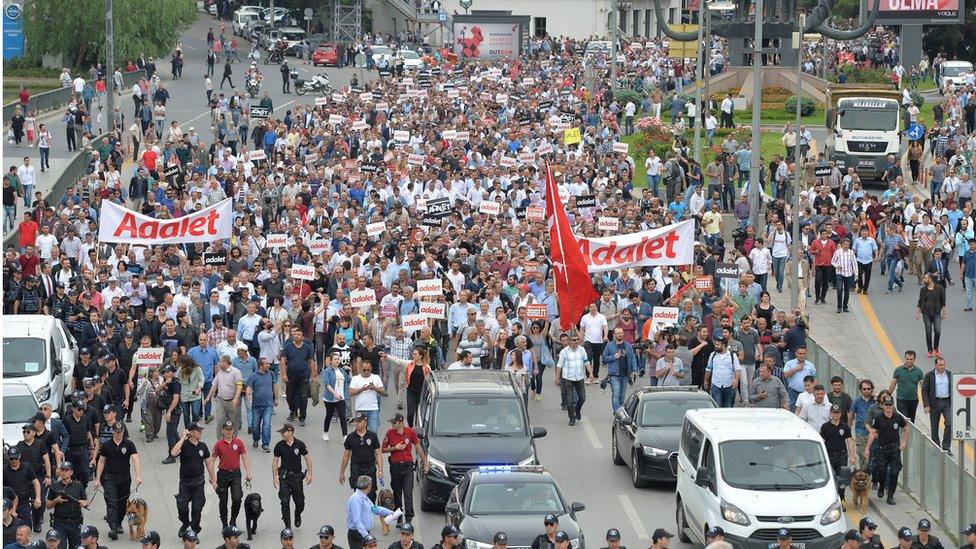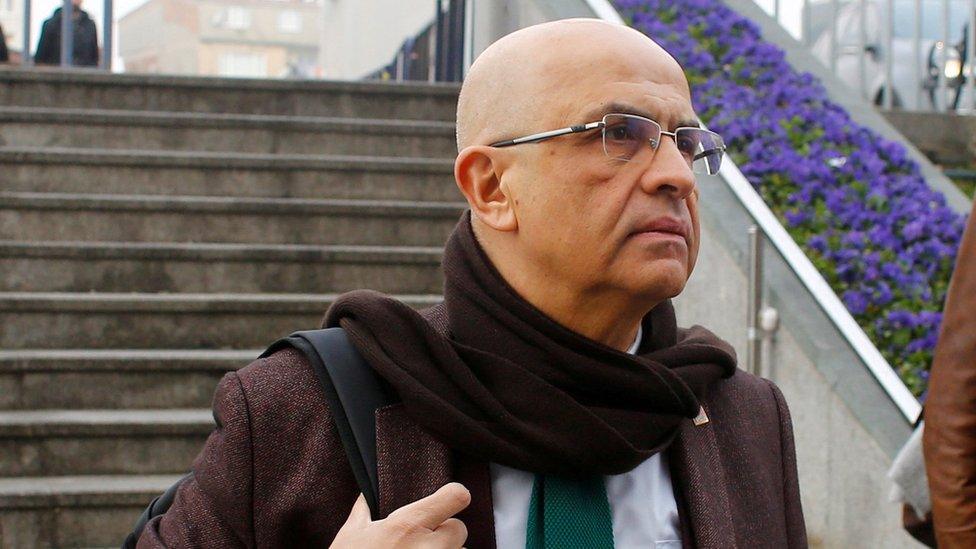Turkey jails UN judge in 'breach of diplomatic immunity'
- Published

The arrest of an opposition MP has also led to protests in the capital
The United Nations says Turkey's decision to convict one its judges is a breach of both diplomatic immunity and a binding legal order.
Judge Aydin Sefa Akay, from the UN's Mechanism for International Criminal Tribunals, was convicted of being a member of a designated terrorist group.
He faces more than seven years in prison if an appeal fails.
Separately, protests have erupted in Ankara over the jailing of an opposition secularist MP.
Enis Berberoglu from the Republican People's Party (CHP), the main opposition party, was sentenced to 25 years in prison for leaking "secret information" to a newspaper.
He is accused of handing over evidence showing Turkish intelligence services transporting arms over the border to Syria, a story which angered President Recep Tayyip Erdogan.
The editor and several writers from Cumhuriyet, which published the story, were detained in the wake of the July 2016 attempted coup as part of a widespread crackdown.
CHP leader Kemal Kilicdaroglu joined protesters in the capital, and vowed to march all the way to Istanbul, about 450km (280 miles) away if necessary, the AFP news agency reported.
"I am going to walk and I am going to walk all the way to Istanbul," he was quoted as saying. "And we will continue this march until there is justice in Turkey."

Enis Berberoglu's imprisonment has sparked political protests
The CHP, founded by Turkey's first president of the modern era, Mustafa Kemal Ataturk, has not been subjected to the same clampdown as Kurdish opposition groups since the failed coup.
Judge Akay, however, was detained in the subsequent crackdown, along with tens of thousands of other officials.
Diplomatic immunity
Mr Akay has now been convicted of membership of the Gulen movement, founded by exiled Muslim cleric Fethullah Gulen.
He has been released pending an appeal, but his passport has been confiscated and he is banned from leaving the country, the UN said in a statement.
The MICT, which is a subsidiary of the UN Security Council, has made repeated requests for his release, including an order in January which it says is legally binding on the Turkish government.
The president of the MICT, Judge Meron, said Turkey's action was "in further breach of Judge Akay's protected status under the international legal framework".
He urged the Turkish government to respect Mr Akay's status "and to resolve the situation consistent with international law".
Mr Akay is involved in reviewing the 30-year sentence given to Augustin Ngirabatware, a former Rwandan planning minister, by the International Criminal Tribunal for Rwanda.
A part of the Turkish case against him was the use of encrypted communication service Bylock, Dogan news agency said, which Turkey says was created for Gulen supporters.
Turkey blames the Gulenist movement for the coup attempt and classifies it as a terrorist organisation.
Mr Gulen, who lives in exile in the United States, has denied involvement.